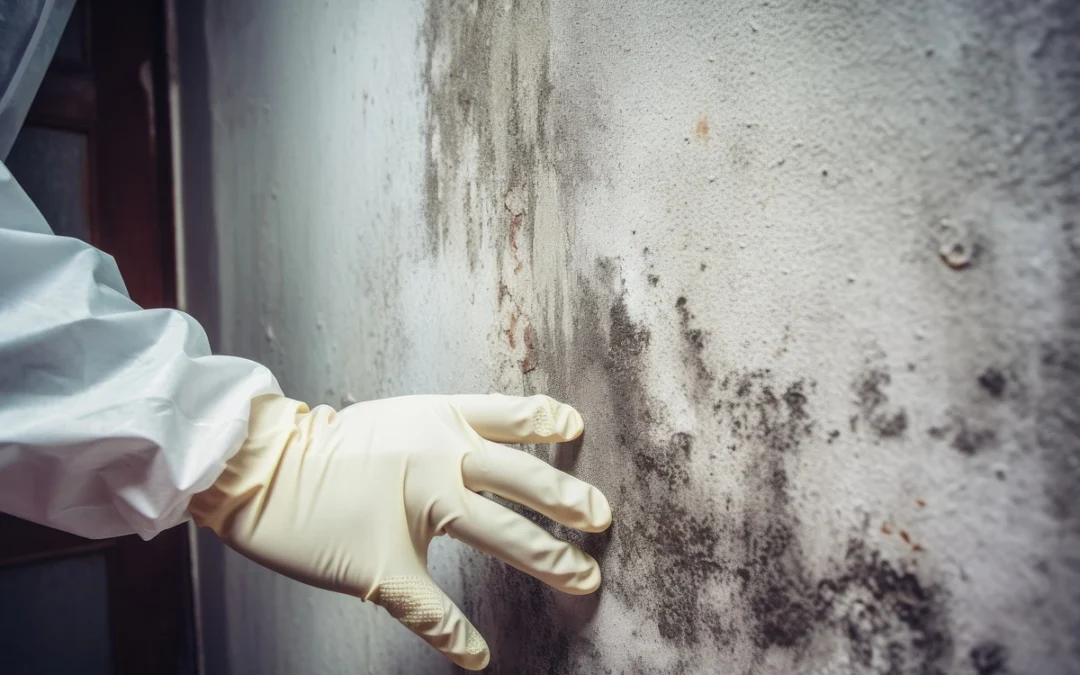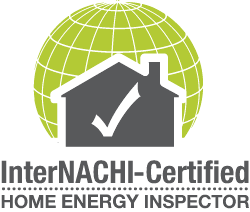At last, you have found the right home. The beautiful two-story house features an ideal kitchen, a lovely backyard, and a touch of personality. Everything is picture-perfect until your agent casually states, “Make sure you ask about mold from the home inspector.”
Wait, what mold?
Suddenly, the excitement of your dream home is gone, and a new question keeps hovering in your mind: Do home inspectors check for mold, or is that something extra that you need to address?
In this blog, we’ll clear up the confusion and walk you through everything you need to know about mold in home inspection processes, what inspectors look for, what they don’t, and what steps to take if mold is suspected.
What is Mold and Why is it a Concern
Mold is a type of fungus that grows in damp environments. It has the capability to grow almost anywhere: behind walls, under carpets, in attics, and even in HVAC systems.
However, there is one problem: mold is not just an eyesore; it can also be harmful. The Centers for Disease Control and Prevention (CDC) links exposure to molds with allergic reactions, asthma attacks, and other respiratory problems, particularly in children, the elderly, and individuals with weakened immune systems.
This is why identifying mold in a home inspection is crucial. Mold can also harm the house, potentially affecting your health and increasing your home maintenance budget.
Do Home Inspectors Check for Mold
Here’s a simple answer: most regular home inspections do not involve a thorough examination of mold.
That can be simplified.
1. What a Home Inspector Will Do
Some of the actions that a home inspector can take include:
- Take notice of moisture indicators (such as stains, leaks, or water damage).
- Detects musty smells, which may be an indication of hidden mold.
- Mention any surface mold that they may notice.
2. What a Home Inspection Won’t Do
- Conduct an air quality test.
- Pull up flooring or open walls.
- Determine that the mold is toxic without testing it in the laboratory.
In other words, if you’re wondering: do home inspectors check for mold, the answer is: they might spot it, but they’re not trained to test or diagnose it unless they are certified mold inspectors.
Mold in Home Inspection: What to Watch For
Although mold testing is not typically included in a general inspection, a competent home inspector is trained to identify red flags that indicate the need for further inspection.
Some of the typical indications of mold-related problems that the inspectors can identify are listed below:
- Water stains on the ceilings or walls.
- Peeling paint or wallpaper.
- Lingering musty odor.
- Fuzzy protrusive growth in black, green, or white.
- Wet basements or crawlspaces.
- Insufficient ventilation of bathrooms or attics.
These indicators may not prove the presence of mold, but they present sufficient grounds to warrant a thorough investigation into mold.
Mold Testing: When is it a Good Idea
Here are a few instances when a certified mold inspection is a good idea:
- The house had experienced past floods or water damage.
- Unusually high humidity or poor ventilation inside the house.
- Residents are facing breathing problems or allergies.
- A bad, stuffy smell that you cannot get rid of.
- Suspect spots that cannot be identified.
According to Fixr, the removal of mold in the U.S. can cost anywhere from $1,500 to $9,000, depending on the severity of the problem. It is entirely possible to save thousands by catching the mold early.
What Homebuyers and Sellers Should Know
Here’s some information regarding mold in home inspections for homebuyers and sellers.
1. For Buyers
Just in case you buy a house and during the inspection, you notice moisture or what appears to be mold, do not panic. This does not necessarily mean that the deal is over, although it does suggest that you should conduct further investigation.
You can:
- Request a specialized mold inspection.
- Ask the seller to fix the problem.
- Negotiate a decreased price to remediate the molds.
2. For Sellers
It is a wise step to be aware of moisture problems before listing your property. If you suspect mold, have it checked and removed by a professional.
Proactive action will preserve your house value and alleviate suspicion among potential buyers.
Protection Tips
To make sure that mold inspection in a house is thorough, the following is a quick checklist:
- Contract a certified home inspector who knows how to detect moisture problems.
- To be on the safe side, hire a certified mold inspector if anything appears suspicious.
- Check the seller’s disclosure; for example, under Texas law, sellers are required to declare any known mold situations.
Remember, spotting mold in a home inspection isn’t about fear; it’s about awareness.
Final Thoughts
So, back to the big question: do home inspectors check for mold?
Not precisely, but by pointing out warning signs that mold may be present, they can and often do identify potential issues. Although a general home inspection does not involve detailed testing for mold, it is essential to identify potential issues and conduct further investigation to address them.
You would want to know about any mold problem before the deal is closed, not after the movers are delivering the boxes to your new home.
Purchasing or selling a house is a big event. Instead of taking a chance, ensure that you eliminate any unknown hazards, such as mold.
At Blessed Assurance Home Inspections, we do more than home inspections. Our building inspectors are trained to recognize the indicators of moisture and mold. And when we detect something suspicious, we will direct you to the next appropriate action, so you won’t be left in the dark.
Book your home inspection with BAHI now and enjoy the peace of mind because a safe and healthy home should not be a luxury.









